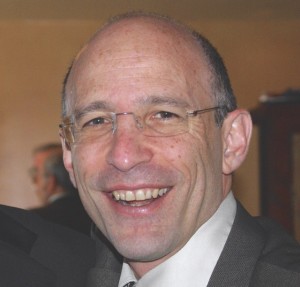Music-centered Music Therapy
Music therapists recognize our clients often want the same thing from music therapy as all people want from music: an essentially musical experience that meets an inborn need. In music-centered thinking, musical experiences are not merely tools to nonmusical ends, but can also serve as appropriate goals of music therapy. In this AMTA-Pro podcast, Dr. Ken Aigen talks about two main topics: a critique of some aspects of the conventional wisdom about the nature of music therapy (as embodied in the tenets of evidence-based practice), and a discussion of some of the attributes of an alternative vision of music therapy known as music-centered music therapy.
[display_podcast]
Music-centered Music Therapy
AMTA-Pro Podcast April, 2015
Kenneth Aigen, DA, MT-BC, LCAT
Nordoff-Robbins Music Therapist
— + —
The conventional view of music therapy is as a healthcare profession where clinicians work with objective behavioral and physiological goals using music as tool to achieve nonmusical ends. This view asserts that music therapy should be modeled on the practice of medicine in following the procedures of assessment, diagnosis, and the prescribing of an intervention of a specific dosage and duration in order to ameliorate specific conditions or effects of disability, injury, and disease. Contemporary tenets of evidence-based practice are used to justify a conception of music therapy that must be held to rigorous standards of traditional views of science.
In this conversation, I critique some of the philosophical bases of the conventional view in order to support the notion that alternative views are possible. Some themes developed in the talk and in the publications are as follows: (1) While music therapy is described as a healthcare profession, most music therapy programs are in schools and departments of music and the predominance of the curriculum is in music. What does this structural reliance on music training imply about the profession? (2) In the conventional view of music therapy, music is treated as a medical intervention and yet research about the way that humans engage with music suggest that it is too idiosyncratic to be analogous to a medical intervention. How does this recognition affect the medical model of music therapy? (3) Contemporary developments in health care emphasize things such as a client-empowerment, client choice, and the use of client resources in a modern, progressive society. Some of these tenets clash with the hierarchies and practices of a traditional medical community and undermine the purely scientific and medical approach to music therapy.
The predominance of music therapy theory has been created from ideas originating in a variety of external disciplines. Some of the more common sources of imported theory have included neurological science, psychoanalysis, and behavioral learning theory. There has also been another stream of theory development in music therapy, the principles and practices of which strongly contrast with those drawn from nonmusical disciplines. These theories place greater emphasis on musical processes, structures, and experiences. Hence, the term music-centered is an apt one to summarize the common element in what is an otherwise diverse constellation of clinical practices and thinking.
In music-centered thinking, musical experiences are not merely tools to nonmusical ends but can also serve as appropriate goals of music therapy. The way that clients experience themselves, other people, the music, and the world around them while involved in musical experiences is conceived as a legitimate therapeutic outcome. This perspective is based on the recognition that clients often want the same thing from music therapy as all people want from music: an essentially musical experience that meets an inborn need. In a music-centered view, music therapy is conceptualized as a professional practice that helps create the conditions for musicing to occur for people who cannot create these conditions on their own.
References and resources
Kenneth Aigen
Music Therapy Perspectives 2015;
doi: 10.1093/mtp/miv013
Aigen, K. (2014). The study of music therapy: Central issues and concepts. New York: Routledge.
Aigen, K. (2014). Music-centered dimensions of Nordoff-Robbins music therapy. Music Therapy Perspectives, 32(1), 18-29.
Aigen, K. (2005). Music-centered music therapy. Gilsum, NH: Barcelona.
Aigen, K. (1999). The true nature of music-centered music therapy theory. British Journal of Music Therapy, 13(2), 77-82.

December 25th, 2015 at 4:19 pm
EXCELLENT observations and thought process.
Although I have been immersed in music performance and publication for more than 50 years, and am now completing a Master’s equivalency course through the University of the Pacific to begin a new vocational phase in music therapy, I have felt that “music” is often devalued in the therapeutic process.
When asked what music is my favorite, or what benefit I derive from music, people are surprised when I tell them I much prefer to “make music” as opposed to listen to it. It is most often to the engagement that is therapeutic. The only exception was when in cancer treatment and I could not make music, but found therapy in the text of a song wrapped in the musical context of a style which was most familiar as a young adult.
I would love to hear or read more on this subject.
January 7th, 2016 at 5:03 pm
If we subjugate the quality of the music to the attainment of non-musical goals, we could be walking a path towards impoverished musical experiences, where the value of the service is measured more by the non-musical outcomes than by the quality of the client’s experience.
Quality music therapy relies on quality music at its core. Music is an end in an of itself and it’s what makes music therapy special and powerful. I agree with Ken, that we can and should value the musical aspects of our services as much as, if not more than, the “evidence-based practices’ that seem to be more in the spotlight these days. There is room for both and we don’t have to choose one over the other.